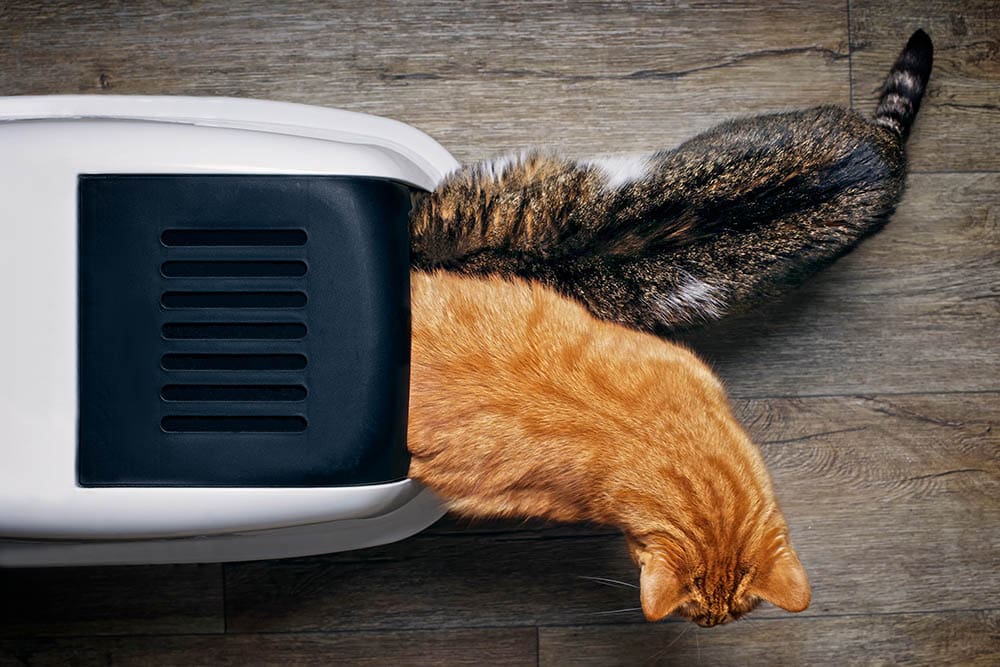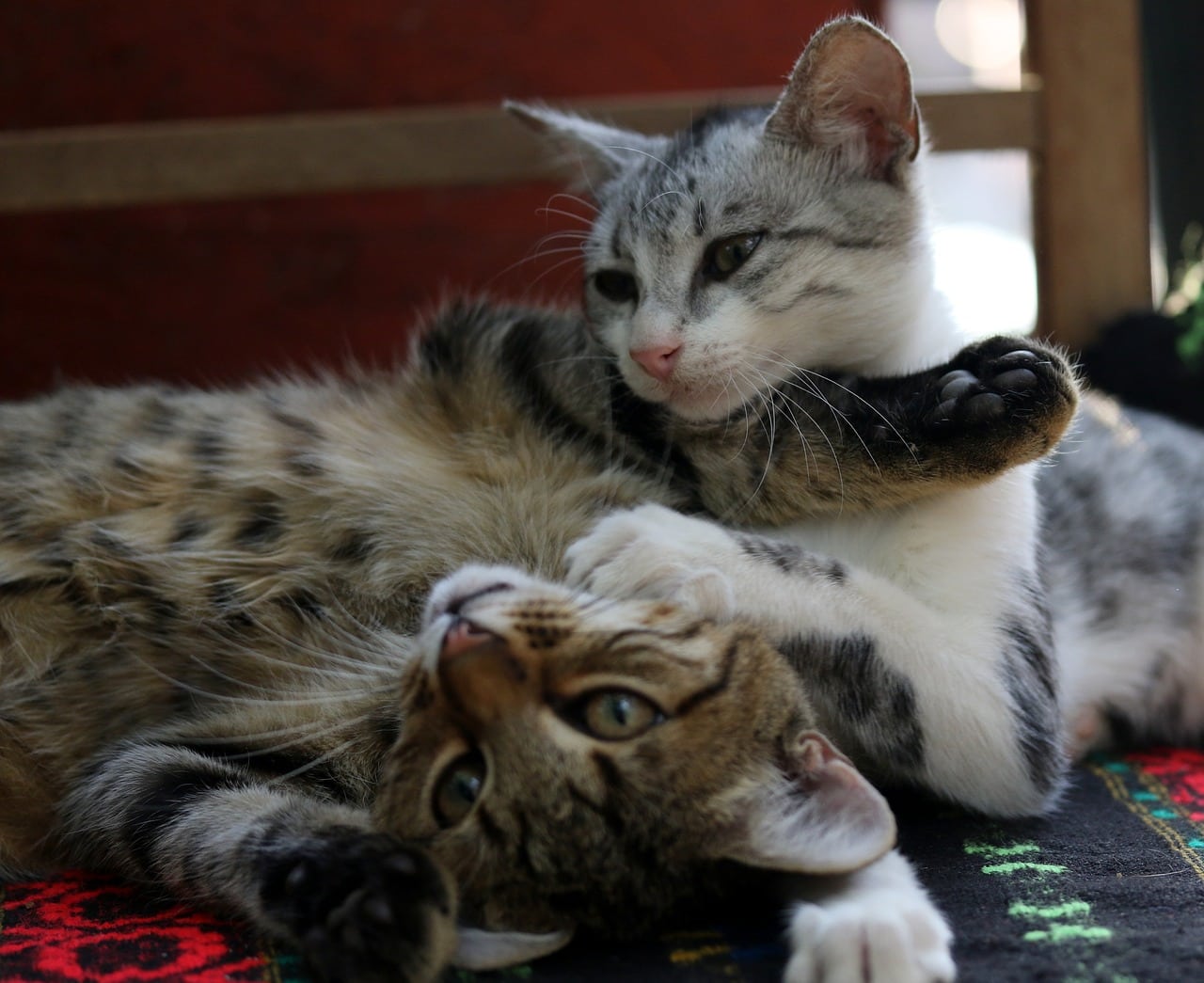Adopting a cat is a huge commitment. Bringing home a second cat or even two at once can be twice as challenging. Are the rewards worth the risks? It may be twice the fun, but having two cats isn’t all snuggles and affection. You need to ensure you, your lifestyle, and your household can commit to up to 20 years of care twice over.
To help you decide whether you want to join the ranks of multi-cat households, we’ve put together a list of the pros and cons.

Why It’s a Good Idea to Have Two Cats
- Not much extra work
- Reduces loneliness
- Twice the snuggles
Having two cats doesn’t require much extra work. Typically, in a multi-cat household, everyone gets fed the same food at the same time. You may need to change the cat litter a little more frequently. You may find that with a large cat box and high-quality litter, once or twice a week will suffice. This, of course, depends on your cats; some cats prefer to have a litter box all to themselves, while others don’t mind sharing.
Getting your cat a buddy can be good for their emotional health. Despite what you might think about cats being solitary creatures, they can be quite social. Cats generally enjoy the company of other cats, barring personality conflicts or traumatic experiences. If you adopt two cats from the same litter, they may have an easier time acclimating to their new home with you. Having a friend always makes change less scary, regardless of the species.
Of course, the best reason to get a second cat is that you’ll have two cats. One cat is fun, but two are twice the fun. Watching them play and interact together can be an absolute blast, especially if they like one another. Your cats will need your love and attention, but they’ll have a buddy who’s always around to hang out with.

 Why It’s a Bad Idea to Have Two Cats
Why It’s a Bad Idea to Have Two Cats
- Twice the expense
- Space requirements
- Trouble getting along
Twice the pets means twice the expense. Cat food for one can cost a pretty penny already, but you’ll also have twice the veterinarian trips, twice the vaccinations, and twice the checkups. Should one of your cats get sick, you must worry about whether they’re contagious. Vet bills can add up quickly, and a catastrophic illness can cost thousands of dollars. You’ll need to decide if your budget can handle two crises simultaneously.
While cats are amenable to living in small spaces, having two cats in a small space isn’t ideal. Each of your cats will want to stake a claim to their parts of your home. Some cats prefer to nap on the floor near a window, while others will gladly take over your sofa. You’ll need to make sure that each of your cats has enough space to call their own so they can live comfortably.


Conclusion
Not all cats can get along with one another. Some cats do not mesh well. You can mitigate this to an extent by adopting two cats from the same litter, but that doesn’t always mean they’ll grow up to enjoy one another’s company. It’s hard to predict how two cats will interact with one another. A tired senior may enjoy the liveliness of a new kitten, or they may hiss at the newcomer from under the bed. No matter how friendly your cats are, you’ll need to work with them to ensure a smooth introduction.
In some ways, having two cats is more than twice as hard as having one. Instead of just managing the health and happiness of one cat, you’re entirely responsible for the well-being of two. If you’re already a dedicated caregiver for one cat, however, you’re likely to find it easy to scale up the effort to two. You know that you have the heart for more than one pet; you just need to decide if you have the time, money, and space.
Related Read:
Featured Image Credit: Image Credit: Pixabay






